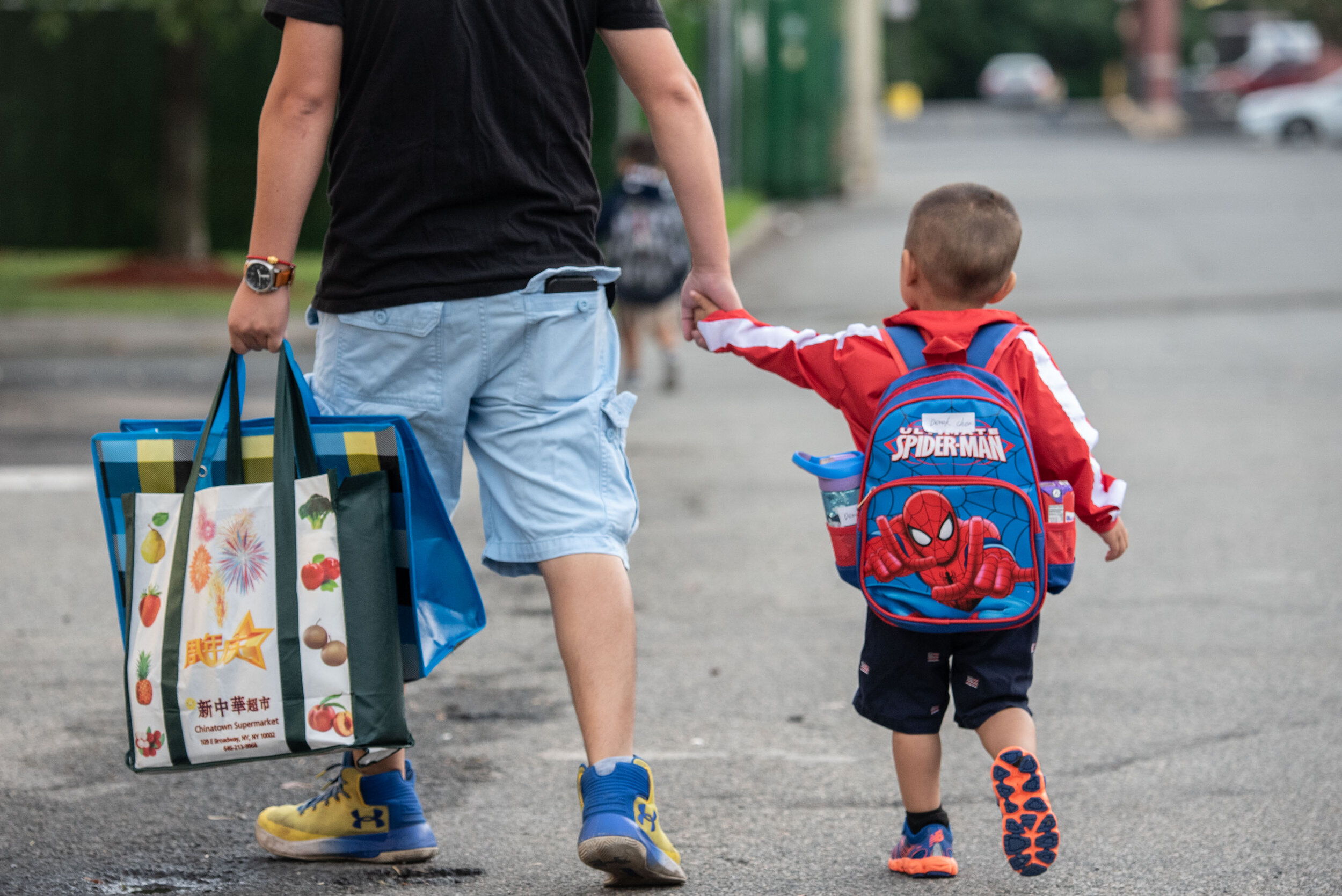While NYC mulls shelter WiFi, price tag prevents providers from doing it themselves
/A lack of WiFi in homeless shelters is fueling a digital divide among New York City children. Mayoral Photography Office
By David Brand
As soon as COVID-19 forced New York City schools and services to go remote, staff at the homeless shelter provider BronxWorks knew their residents were in for some trouble.
Over 250 families live in the organization’s three shelters and few had reliable internet access, said BronxWorks Executive Director Eileen Torres. That meant kids would fall behind in their remote classes, parents would struggle to search for jobs and families would miss out on virtual housing tours, she said.
BronxWorks got quotes for wiring their sites for broadband access, but the $100,000 price tag proved prohibitive. “We don’t have that financial flexibility to find those dollars,” Torres said. “We don’t have that kind of funding.”
Torres and BronxWorks decided to apply for private grants to set up broadband internet and received money from the Robin Hood Foundation and the New York Community Trust to make it happen. The organization is now one of the very few shelter providers in the city that has extended internet access to every unit Still, the initiative isn’t permanent.
“We’re concerned the money will run out,” Torres said.
Only a city-backed program can provide reliable internet access to every shelter resident and help close the gaping digital divide that complicates school, work and housing for low-income families, she said.
Advocates praised Mayor Bill de Blasio’s recent pledge to provide internet access at every family shelter in the city, but say the proposal remains ambiguous.
In a letter to Legal Aid Wednesday, officials from the city’s Department of Social Services said their “aggressive goal is to have all sites complete this summer” and to set up WiFi at 27 “priority sites” where cellular coverage is poor by the winter.
“The City is working with Charter and Altice to provide WiFi services to all existing DHS shelters that serve families with children that are expected to be in use beyond 2021, as well as 22 planned new shelters,” wrote DSS Senior Counsel Martha Calhoun.
But installing WiFi at many of the 240 family shelters will be a challenge that takes time to complete, Calhoun wrote.
Legal Aid’s Education Law Project chief Susan Horwitz said the city’s plan was “insufficient”.
While they wait for WiFi, “families in shelters will continue to grapple with shoddy internet for weeks and months, impairing access to remote learning,” she said.
The more than 12,000 school-aged students who live in New York City homeless shelters depend on the internet for remote learning and are at risk of falling further behind their peers, she told the Eagle earlier this month.
The Family Homelessness Coalition said delaying WiFi access for families in shelter “isn't just senseless, but extremely detrimental to their well-being.” Until WiFi service is installed, the city should establish internet hotspots and learning labs near shelters, they said.
The Department of Homeless Services points out that the city’s Department of Education has prioritized homeless students for distribution of LTE-enabled tablets and devices for remote learning. The city has also provided a cellular data plan for families in homeless shelters, though families say the coverage is poor at several sites.
“We are currently exploring every possible option to ensure our clients are fully connected across the board,” the Department of Homeless Services said in a statement.
Until the city acts on the pledge to provide universal WiFi access, students and families who live in shelters will continue missing out, said Christine Quinn, president of the family shelter provider Win and a former City Council speaker.
“Time is crucial,” Quinn said.
Win shelters offer WiFi in common areas and lobbies, but they cannot afford to outfit entire buildings, she said.
“The estimated cost to pay the WiFi bill is $300,000 a year at our present number of shelters,” Quinn said. That number doesn’t include the cost of actually installing WiFi throughout Win’s 12 shelters, she said.
She said the city could use its enormous contracting power to pressure private companies to install the WiFi, Quinn said. The companies, in turn, would benefit, she added.
“You could get a really big PR bang out of that,” she said.
She also questioned whether de Blasio and city agencies understand the importance of internet access for shelter residents.
“The city, by their actions, doesn’t believe that and doesn’t express that,” she said. “They have in their hands all the potential entities to have a solution, and they don’t engage those resources.”




